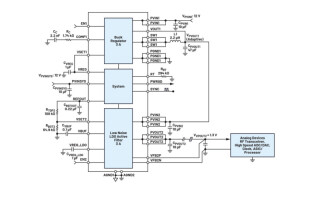Lenovo Picks Synaptics’ Katana Edge AI Platform for Yoga 11 Tablet
March 03, 2022
Blog

Within three weeks of the release of Synaptics’ Katana low-power edge AI platform, Lenovo announced its successful partnership with Synaptics to adopt the Katana system-on-chip for their latest devices of the Yoga family of tablets. Taking advantage of the low-power Katana SoC architecture and energy-efficient AI software, Lenovo plans to deliver premium voice communication and voice assistant features in Lenovo’s Yoga 11.
The Katana system-on-chip utilizes the proprietary power and energy-optimized neural network with application-specific processing cores. The platform combines energy efficiency with the modified architecture through the partnership with Eta Compute. The design was aimed for ultra-low-power use cases in edge applications such as retail, factories, farms, and smart home. However, it was surprising to see the adoption of the new Katana platform in smart consumer electronics.
Lenovo seems to focus more on the AI-enabled voice assistant feature, which can be experienced in Lenovo’s Yoga 11. To support this goal, the Katana system-on-chip is designed to capture user voices and related signals in a very complex environment with many noises. The plan to build a robust voice assistant experience comes from the SoC capabilities to remove extraneous sound associated with the challenging environments. The audio clarity of the hardware is taken care of through a four-speaker acoustic echo cancellation algorithm. Moreover, the chip also supports the majority of the automated speech recognition engines for it to hear voice commands in noisy surroundings.
“Lenovo adopted the Katana low-power AI solution from Synaptics for our Yoga Family of tablets, continuing a long and successful relationship between the two companies,” said Tony Chen, Tablet Business VP at Lenovo. “We look forward to continued collaboration with Synaptics, extending our partnership across the touchpad, fingerprint, video interface, audio, and now ultra-low-power AI technology powering premium Lenovo product lines.”

Image Credit: Forbes
Katana’s power-efficient edge AI silicon comes with a multi-core processor architecture and significant on-chip memory for extensive use cases. The optimized multiple architectural techniques give the possibility to save power even for application-specific tasks. The edge AI platforms also offers wireless connectivity to provide system-level modules and solutions. The highlighted power efficiency feature comes from its increased adoption in battery-operated devices requiring software optimizations. For the AI compiler, the SoC combines with the Eta Compute’s TENSAI Flow software for high-performance and power-optimized libraries.
Reducing time-to-market has always motivated every AI platform to offer faster prototyping and testing the initial draft product for mass production. The kit includes pre-trained machine learning models, also giving the user option to train the models with their custom datasets using frameworks like TensorFlow, Caffe, and ONNX.
Surprisingly, the Lenovo executive mentions the continued partnership with Synaptics and hopes to explore more device integrations through innovations and technological advancements. Lenovo has leveraged Katana’s strengths in the Yoga tablets to provide a single place for meeting the current increasing demands while taking care of the energy efficiency and providing futuristic AI features.





